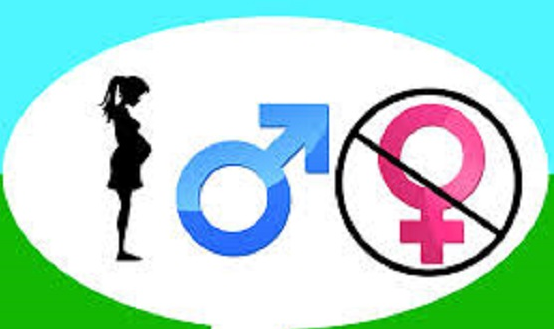Sex-selection abortions are illegal in Vietnam, but the cultural preference for boys is leading families to find new ways around the law.
Abortion rates are rising drastically in the Asian nation and, with them, the discriminatory practice of aborting unborn girls, according to the Bangkok Post. Vietnamese women face societal pressure to abort their unborn girls and fear abuse from their husbands or families – fears that are echoed by many women throughout Asia.
The Vietnam news report continues:
The lack of stigma, and increased teenage sexual activity, have driven up abortion rates, which have reached one termination for every five live births per year, according to the [Vietnam] Health Ministry.
In 2014, a record of 112.4 boys were born for every 100 girls, up from 106 boys in 2003. In 16 localities, the male ratio exceeded 115, topping out at 124.4 at northern province of Quang Ninh. At that rate, Vietnam would have 4.5 million more males than females by 2050, some studies say.
“Vietnam will face the problems China has faced because our sons will have trouble finding wives,” said Khuat Thu Hong, director of the Hanoi-based Institute for Social Development Studies. China saw nearly 118 boys born for every 100 girls in 2011.
Though Vietnam bans families from learning the sex of their child via ultrasound, medical staffers get around the law by using code words to tell the mothers that they are carrying a “butterfly” rather than a “bird” or that the baby “looks like the father,” the news outlet reports.
Pham Thu Hien, a gender-bias expert with the United Nations, told the news outlet that wealthy families travel outside the country to escape the law and abort their unborn girls. Others use in vitro fertilization to produce sons, she said.
Click here to sign up for daily pro-life news alerts from LifeNews.com
Reggie Littlejohn, of Women’s Rights Without Frontiers, an organization working to end female gendercide and forced abortions, said Vietnam’s statistics are consistent with the rise in sex-selection abortions all across the world.
“The widespread use of ultrasound technology and easy access to abortion, coupled with brutal son preference, spells a death sentence for millions of girls every year,” Littlejohn told LifeNews. “It is urgent that we address the root causes of gendercide – namely, the cultural roots of son preference – in order to stop its spread.”
Currently in China, another country where sex-selection abortions are rampant, Women’s Rights Without Frontiers works to save girls by providing resources to women who are pregnant with or parenting a daughter, Littlejohn said.
“… we will go to her door with a strong message of hope: ‘Do not abort or abandon your baby because she is a girl,’ our fieldworker will say. ‘We will give you monthly support for a year to empower you to keep your daughter,’” Littlejohn said, noting that they have saved more than 200 girls from abortion or infanticide in China so far.
As Littlejohn and others work to end the massive killing of baby girls, the country of Vietnam also is increasing its efforts to curb the problem.
The Vietnam Health Ministry recently proposed lowering the legal limit for abortions from 22 weeks to 12; but the public has been vocal in its opposition to the proposal, the Bangkok news outlet states. The country also may try offering families financial benefits such as extra insurance or tuition for girls, according to the report.
As LifeNews previously reported, Vietnam announced that it would end its two-child policy in April, amid concerns about its declining population. For decades, the Vietnamese government sterilized women after the birth of their second child, and employed coercive economic restrictions to punish families who had more than two children.
A 2007 UN study raised awareness about the growing gendercide crisis in Vietnam and Nepal. The report found that, as is the case in China and India, access to abortions and ultrasounds has produced high numbers of sex-selection abortions of unborn girls. The United Nations urged both nations to begin public education programs to improve respect and care for girls.








